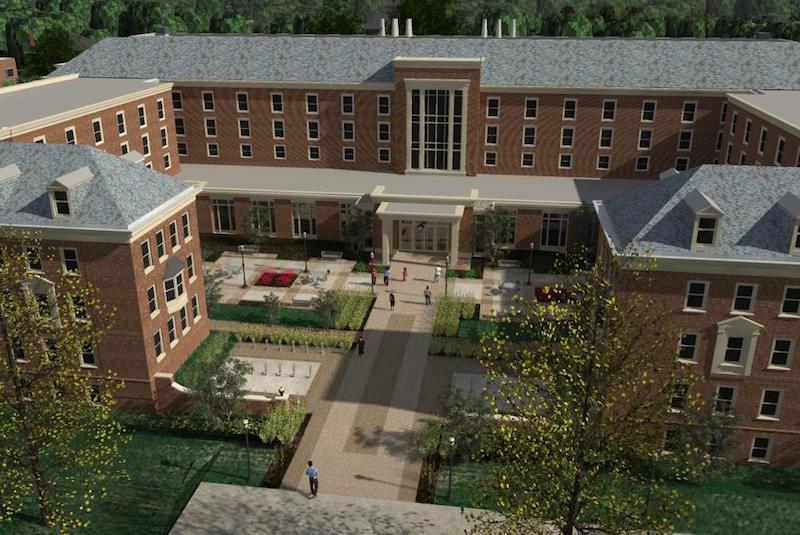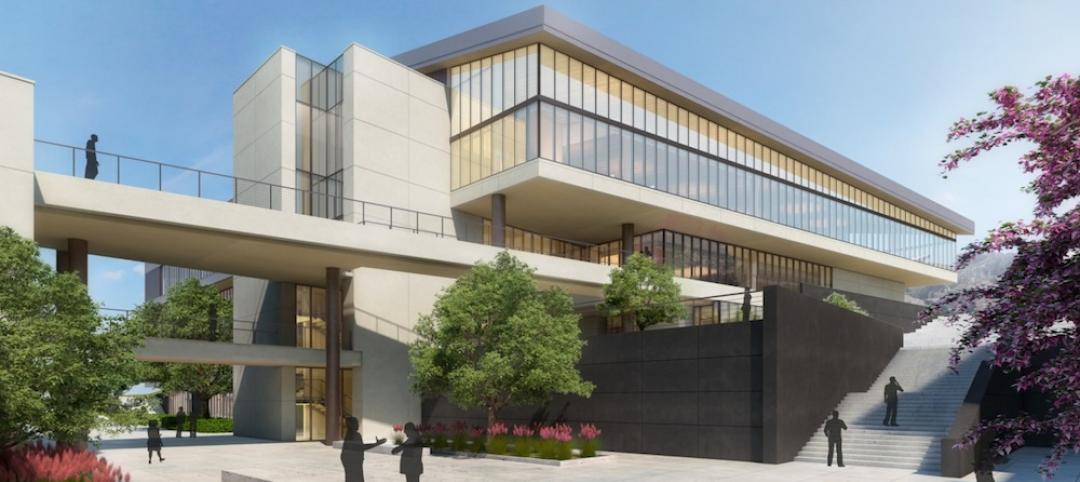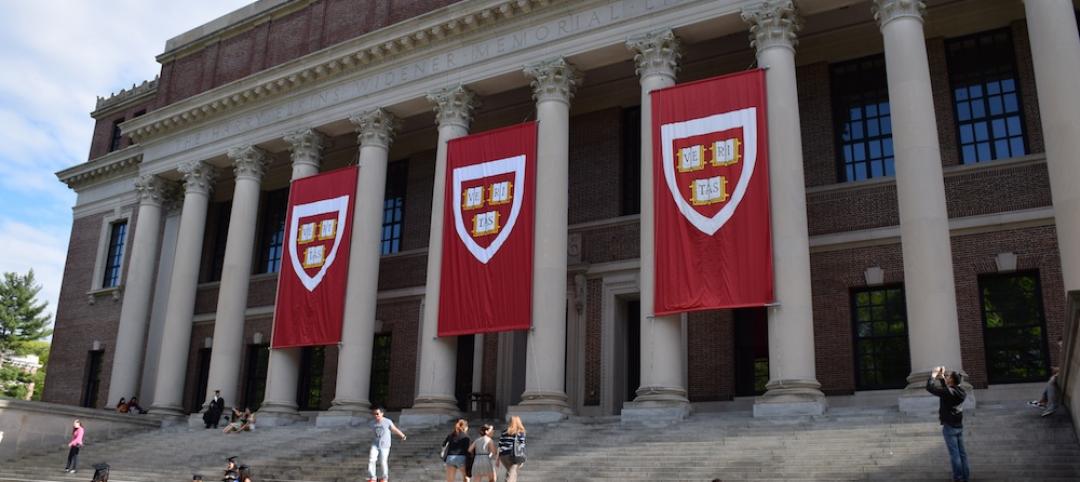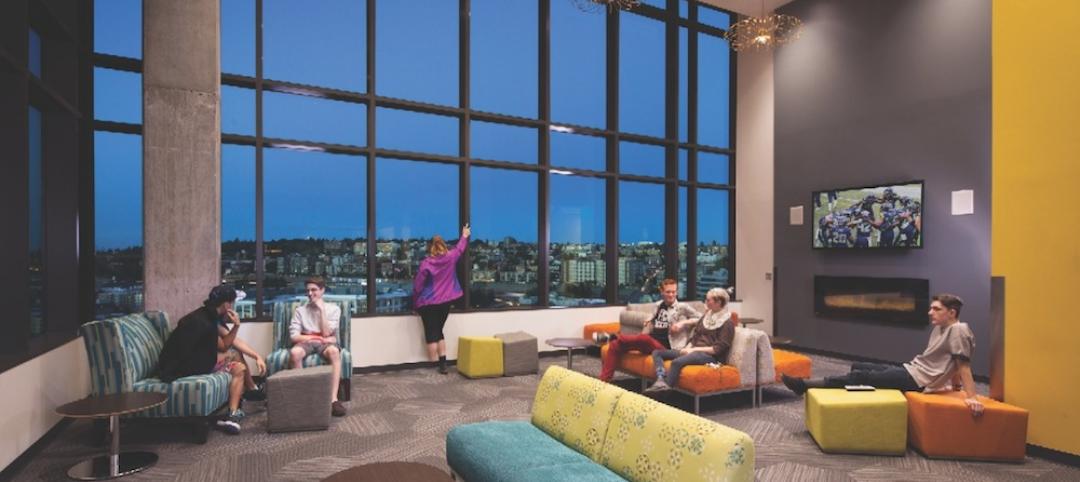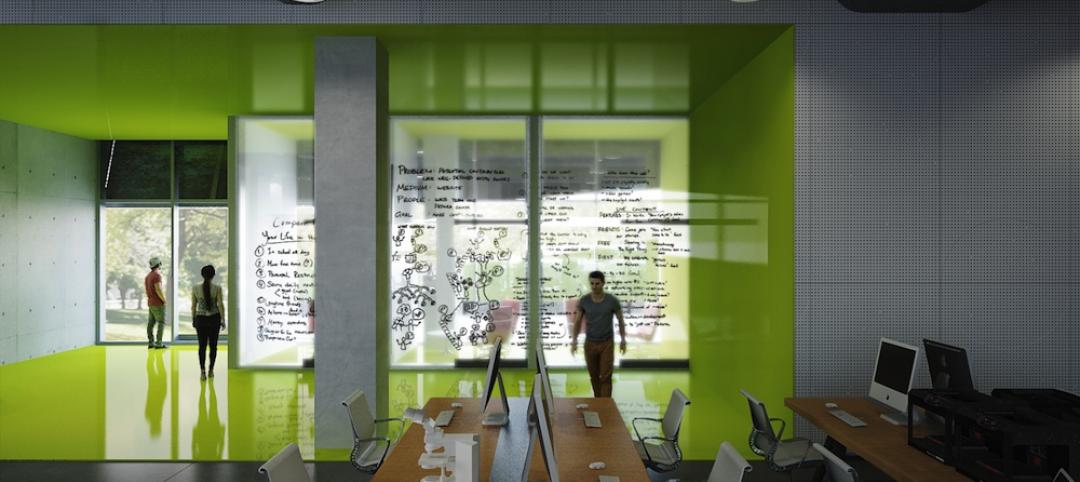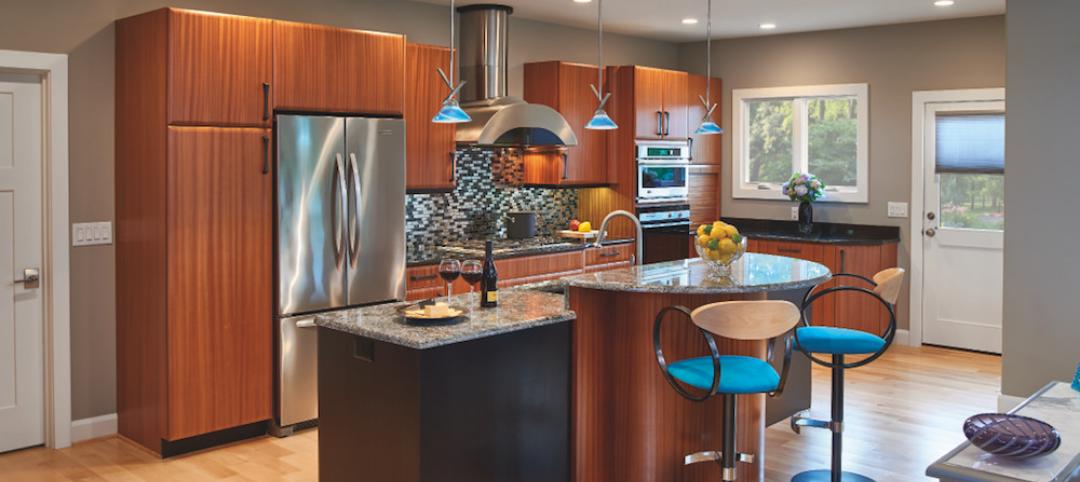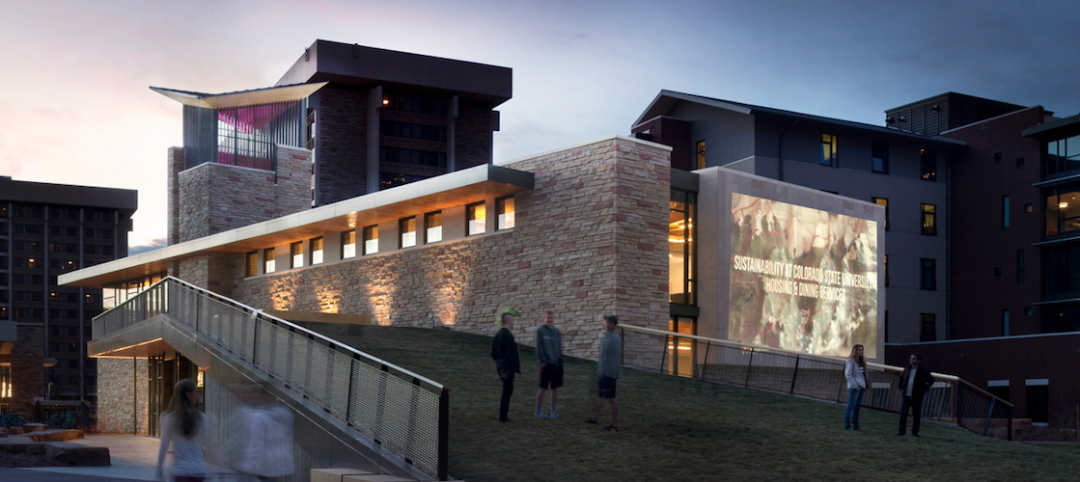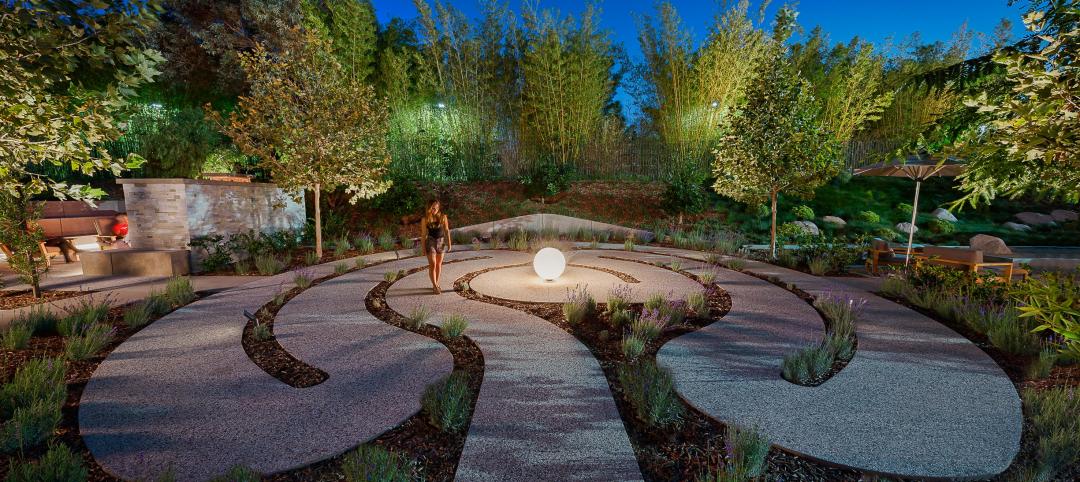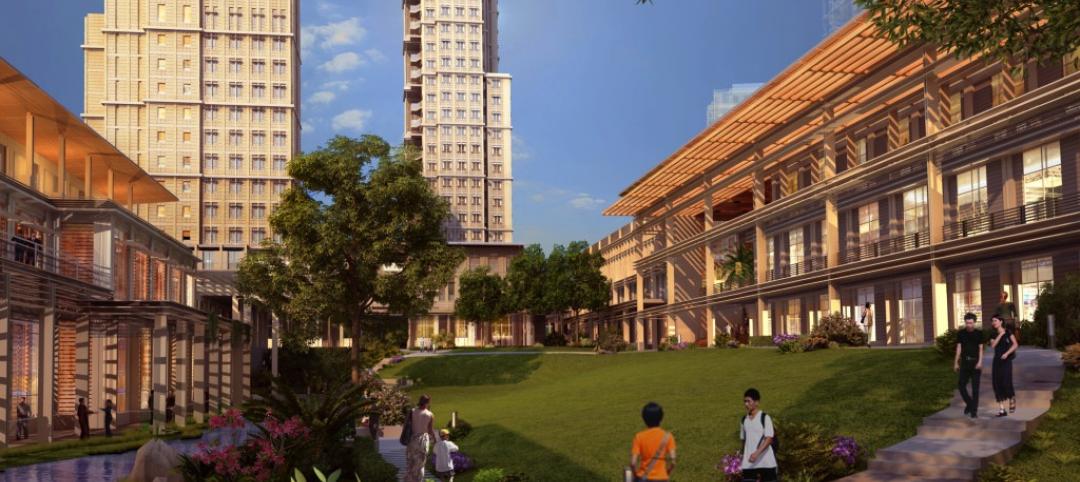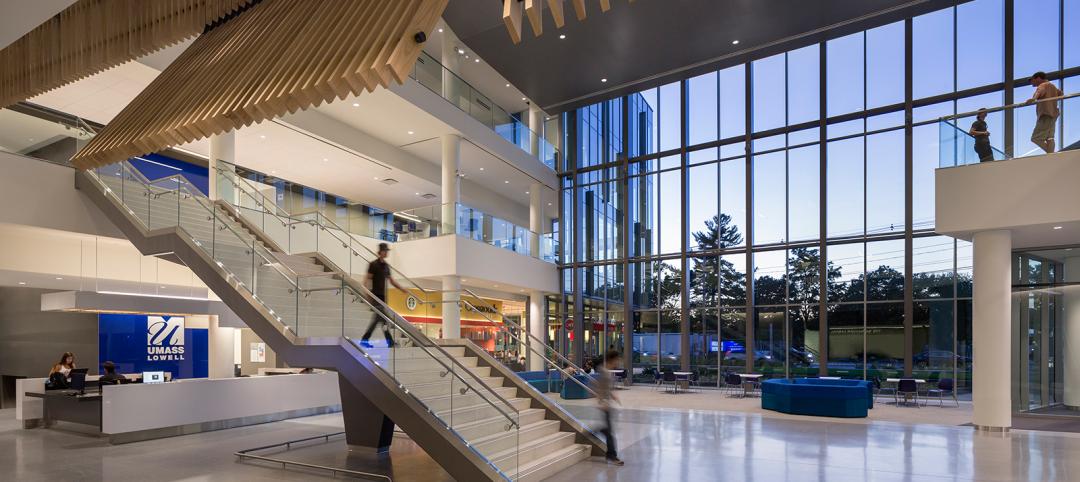Originally built in stages between 1928 and 1932, the University of Minnesota’s Pioneer Hall became an outdated facility that did not meet building codes, wasn’t handicap accessible, and was lacking in many comforts students wanted.
The facility had narrow corridors, no air conditioning, limited study space, and an underground dining area. After debating for years whether to renovate the building or completely knock it down and build a new one, the university decided on a $104.5 million renovation/addition project spearheaded by KWK Architects partnered with architecture/engineering firm-of-record TKDA.
The project retains the character-defining features of the original building while expanding the building footprint to improve housing and dining programs. The new housing component increases the number of beds to 756 and incorporate study and community spaces to enhance the experience of first-year students.
See Also: AIA and the University of Minnesota partner to develop Guides for Equitable Practice
The new dining space will be moved from its underground location and brought up to grade level. Seating capacity, meal, serving, and seating options will all be expanded. The new facility will be able to accommodate 850 students at any time.
The renovation also rectifies one of the biggest shortcomings of the original building by providing for full ADA accessibility. New meditation rooms and lounges will also be created.
Once completed, Pioneer Hall will comprise 257,000 sf, which includes 85,600 sf of renovated space and 171,400 sf of new construction. The renovated Pioneer Hall is slated to be open in time for fall semester 2019.
Related Stories
University Buildings | Mar 11, 2016
How architects can help community colleges promote community on campus
Even in the face of funding challenges and historic precedent, there are emerging examples of how partnership between two-year academic institutions and designers can further elevate community on campus. CannonDesign's Carisima Koenig has a few key examples.
University Buildings | Mar 1, 2016
The 5 most questionable college and university rankings of 2015
SmithGroupJJR's David Lantz identifies five of the most flawed higher education rating systems, including ones with arbitrary categories, and others that equate college with a transactional investment.
University Buildings | Feb 29, 2016
4 factors driving the student housing market
In the hyper-competitive higher education sector, colleges and universities view residence halls as extensions of their academic brands, both on and off campus.
University Buildings | Feb 17, 2016
New ideas to help universities attract and empower STEM students
Educational institutions are focusing on new learning strategies that engage students in activities, enable collaboration across STEM disciplines, and encourage students to use their hands just as much as their heads, as Stephen Blair of CannonDesign writes.
Multifamily Housing | Feb 1, 2016
Top 10 kitchen design trends for 2016
Charging stations, built-in coffeemakers, and pet stations—these are among the top kitchen design trends for the coming year, according to a new survey of kitchen and bath designers by the National Kitchen & Bath Association.
| Jan 14, 2016
How to succeed with EIFS: exterior insulation and finish systems
This AIA CES Discovery course discusses the six elements of an EIFS wall assembly; common EIFS failures and how to prevent them; and EIFS and sustainability.
Greenbuild Report | Dec 10, 2015
AASHE’s STARS tool highlights the university sector’s holistic approach to sustainability
Buzzwords like “living lab” and “experiential learning” are indicative of the trend toward more holistic sustainability programs that incorporate all facets of college life.
University Buildings | Nov 5, 2015
How active design is reshaping higher education campuses
Active design, a dynamic approach to design with a primary focus on people, assists students in learning to make healthy choices, writes LPA's Glenn Carels.
University Buildings | Nov 4, 2015
Yale completes Singapore campus
The Yale-NUS College has three residence halls and two administrative and academic buildings, with courtyards in the middle of them all.
University Buildings | Oct 16, 2015
5 ways architecture defines the university brand
People gravitate to brands for many reasons. Campus architecture and landscape are fundamental influences on the college brand, writes Perkins+Will's David Damon.


